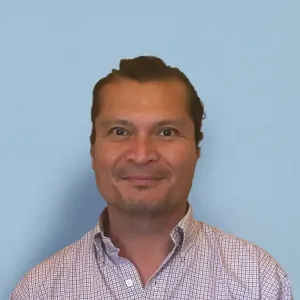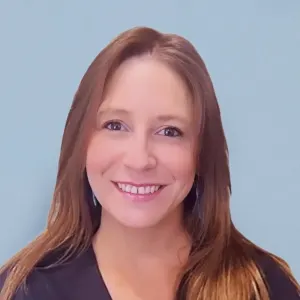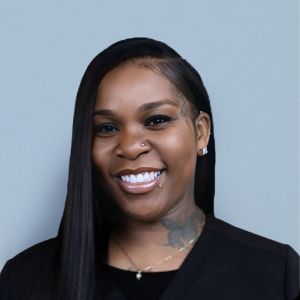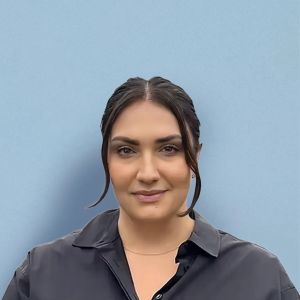








Bliss Recovery Los Angeles
Verified Center
This provider's information has been quality-checked by Recovery.com's Research Team for accuracy and completeness, including center verification through appropriate third-party organizations.
Treatment Focus
This center treats substance use disorders and co-occurring mental health conditions. Your treatment plan addresses each condition at once with personalized, compassionate care for comprehensive healing.
Primary Level of Care
Offering intensive care with 24/7 monitoring, residential treatment is typically 30 days and can cover multiple levels of care. Length can range from 14 to 90 days typically.
Treatment Focus
This center treats substance use disorders and co-occurring mental health conditions. Your treatment plan addresses each condition at once with personalized, compassionate care for comprehensive healing.
Primary Level of Care
Offering intensive care with 24/7 monitoring, residential treatment is typically 30 days and can cover multiple levels of care. Length can range from 14 to 90 days typically.
Provider's Policy
Bliss Recovery works with most PPO insurance plans which can cover 100% of treatment after deductibles. Their insurance experts provide a free, confidential benefit verification so you have a clear picture of what the costs of treatment would be at the facility and how to maximize your insurance benefits. They DO NOT accept any state insurance, medicare, or medicaid.
Bliss Recovery Los Angeles
Bliss Recovery Los Angeles
About Bliss Recovery Los Angeles
Bliss Recovery specializes in treating alcohol and drug addiction, as well as co-occurring mental health disorders, guiding clients from detox through outpatient care. The center is committed to clients’ privacy and comfort, including a pet-friendly policy and flexible personal technology allowance. Their luxurious, supportive environment is a place where clients can focus entirely on healing.
Find Inner Transformation Beyond Abstinence
Bliss Recovery transcends conventional addiction treatment by crafting deeply personalized treatment plans. They combine cutting-edge medical science, like neurofeedback and EMDR, with the ancient power of holistic practices, like mindfulness and yoga. Here, recovery isn’t just about abstaining—it’s about profound inner transformation. The team challenges clients to rewrite their narrative and build a life of profound resilience and well-being.
Heal in a Hollywood Haven
At Bliss Recovery, the private bedrooms are personal havens with scenic views of Lake Hollywood and the iconic Hollywood Sign. Gourmet meals are crafted by on-site chefs and are catered to any nutritional need. For those looking to revitalize their physical health, the fully equipped gym offers personalized training sessions, while off-site activities such as guided city tours and visits to nearby amusement parks give clients opportunities to explore, reconnect, and enjoy meaningful time outside the residence.
Feel Supported with a Longterm Partner in Recovery
Bliss Recovery is committed to walking the lifelong path to recovery with each client. Their aftercare program bridges the gap between treatment and everyday life. Clients get continued access to personalized therapy sessions and supportive group sessions, reducing their risk of relapse. And clients get to stay connected to a group of thriving peers and mentors for years to come.

Highlights from the Center
Highlights
These highlights are provided by and paid for by the center.
1-on-1 Counseling
Therapeutic Location
Customized Treatment Plans
Private Rooms Only
Center Overview
Treatment Focus
This center treats substance use disorders and co-occurring mental health conditions. Your treatment plan addresses each condition at once with personalized, compassionate care for comprehensive healing.
Joint Commission Accredited
The Joint Commission accreditation is a voluntary, objective process that evaluates and accredits healthcare organizations (like treatment centers) based on performance standards designed to improve quality and safety for patients. To be accredited means the treatment center has been found to meet the Commission's standards for quality and safety in patient care.

Bliss Recovery Los Angeles
Insurance Accepted
Cash Pay Rates
Estimated Cash Pay Rate
Center pricing can vary based on program and length of stay. Contact the center for more information. Recovery.com strives for price transparency so you can make an informed decision.




Recovery.com Verified Listing
Recovery.com verified that the name, location, contact information and license to operate for this treatment provider are valid and up-to-date.

Joint Commission Accredited

Licensed by California DHCS
Recovery.com is an independent, third-party mental health resource. Verification does not imply endorsement and does not guarantee the quality of treatment services.
Meet Your Care Team

Gary Papazian
CEO

Dr. Jayson A. Hymes
Medical Director
M.D., M.P.H., D.F.A.C.P.M., D.F.A.S.A.M., Q.M.E.

Dr. Ani Datastanyan
Clinical Director
PsyD L.M.F.T., Doctor of Psychology in Marital and Family Therapy

Litos Mallare
Psychiatrist
MD

Karen Francisco
FNP-C

Justin Amador
FNP-C

Nicole Scarola
Nurse
RN

Shantell Walker
LVN

Timothy Brown
Chief of Staff
LPCC

Andre Mitchell
Program Director
RADT

Pierre Porter
Program Director
RADT

Susan Abdel-Haq
Therapist
LMFT

Jana Rae Corpuz
Therapist
LMFT

Patty Nagapetyan
Therapist
LMFT

Tigran Vardanyan
Therapist
LMFT

Latisha Hutchinson
Case Manager
RADT
Your Care Options
Specializations
Alcohol
Using alcohol as a coping mechanism, or drinking excessively throughout the week, signals an alcohol use disorder.
Detox
Detox fully and safely removes toxic substances from the body, allowing the next steps in treatment to begin with a clean slate.
Benzodiazepines
Benzodiazepines are prescribed to treat anxiety and sleep issues. They are highly habit forming, and their abuse can cause mood changes and poor judgement.
Pet Friendly
For greater comfort and healing, pet-friendly treatment centers welcome dogs and animal companions to stay with their owners while they attend treatment.
Medication-Assisted Treatment
Combined with behavioral therapy, prescribed medications can enhance treatment by relieving withdrawal symptoms and focus patients on their recovery.
Opioids
Opioids produce pain-relief and euphoria, which can lead to addiction. This class of drugs includes prescribed medication and the illegal drug heroin.
Prescription Drugs
It's possible to abuse any drug, even prescribed ones. If you crave a medication, or regularly take it more than directed, you may have an addiction.
Professionals
Busy, high-ranking professionals get the personalized treatment they need with greater accommodations for work, privacy, and outside communication.
Who We Treat
Older Adults
Addiction and mental health treatment caters to adults 55+ and the age-specific challenges that can come with recovery, wellness, and overall happiness.
Executives
Executive treatment programs typically directly support the needs of people who manage businesses and may provide flexible schedules and office space to allow work during treatment.
Young Adults
Emerging adults ages 18-25 receive treatment catered to the unique challenges of early adulthood, like college, risky behaviors, and vocational struggles.
LGBTQ+
Addiction and mental illnesses in the LGBTQ+ community must be treated with an affirming, safe, and relevant approach, which many centers provide.
Men and Women
Men and women attend treatment for addiction in a co-ed setting, going to therapy groups together to share experiences, struggles, and successes.
Midlife Adults
For adults ages 40+, treatment shifts to focus on the unique challenges, blocks, and risk factors of their age group, and unites peers in a similar community.
Treatment Services
Detox
Detox fully and safely removes toxic substances from the body, allowing the next steps in treatment to begin with a clean slate.
Residential
In a residential rehab program, patients live onsite, with access to daily treatment and 24-hour care. An average stay is 30-90 days.
Approaches
Evidence-Based
A combination of scientifically rooted therapies and treatments make up evidence-based care, defined by their measured and proven results.
Holistic
A non-medicinal, wellness-focused approach that aims to align the mind, body, and spirit for deep and lasting healing.
Personalized Treatment
The specific needs, histories, and conditions of individual patients receive personalized, highly relevant care throughout their recovery journey.
Twelve Step
Incorporating spirituality, community, and responsibility, 12-Step philosophies prioritize the guidance of a Higher Power and a continuation of 12-Step practices.
Therapies
1-on-1 Counseling
Patient and therapist meet 1-on-1 to work through difficult emotions and behavioral challenges in a personal, private setting.
Meditation & Mindfulness
A practiced state of mind that brings patients to the present. It allows them to become fully aware of themselves, their feelings, and the present moment.
Trauma-Specific Therapy
This form of talk therapy addresses any childhood trauma at the root of a patient's current diagnosis.
Rational Emotive Behavior Therapy
A type of cognitive therapy that identifies negative self-defeating thoughts and behaviors, rewriting beliefs to be positive, empowering, and present.
Mindfulness Therapy
This ancient practice can be mental, emotional, and even spiritual. In meditation, you focus your attention on the present moment without judgement.
Attachment-Based Family Therapy
ABFT is a trauma-focused therapy that teaches you to form healthy relationships by rebuilding trust and healing attachment issues formed in childhood.
Body Image Therapy
Therapists use cognitive behavior techniques to challenge how patients perceive their body and their worth, rewriting negative thoughts and attitudes.
Conditions We Treat
Schizophrenia
Schizophrenia is a serious mental health condition that causes hallucinations, delusions, and disordered thinking.
Personality Disorders
Personality disorders destabilize the way a person thinks, feels, and behaves. If untreated, they can undermine relationships and lead to severe distress.
ADHD, ADD
ADHD is a common mental health condition caused by dopamine imbalance. Common symptoms include inattention, hyperactivitiy, and impulsivity.
Anxiety
Anxiety is a common mental health condition that can include excessive worry, panic attacks, physical tension, and increased blood pressure.
Bipolar
This mental health condition is characterized by extreme mood swings between depression, mania, and remission.
Depression
Symptoms of depression may include fatigue, a sense of numbness, and loss of interest in activities. This condition can range from mild to severe.
Obsessive Compulsive Disorder (OCD)
OCD is characterized by intrusive and distressing thoughts that drive repetitive behaviors. This pattern disrupts daily life and relationships.
Post Traumatic Stress Disorder
PTSD is a long-term mental health issue caused by a disturbing event or events. Symptoms include anxiety, dissociation, flashbacks, and intrusive thoughts.
Substances We Treat
Alcohol
Using alcohol as a coping mechanism, or drinking excessively throughout the week, signals an alcohol use disorder.
Benzodiazepines
Benzodiazepines are prescribed to treat anxiety and sleep issues. They are highly habit forming, and their abuse can cause mood changes and poor judgement.
Chronic Relapse
Consistent relapse occurs repeatedly, after partial recovery from addiction. This condition requires long-term treatment.
Co-Occurring Disorders
A person with multiple mental health diagnoses, such as addiction and depression, has co-occurring disorders also called dual diagnosis.
Cocaine
Cocaine is a stimulant with euphoric effects. Agitation, muscle ticks, psychosis, and heart issues are common symptoms of cocaine abuse.
Drug Addiction
Drug addiction is the excessive and repetitive use of substances, despite harmful consequences to a person's life, health, and relationships.
Ecstasy
Ecstasy is a stimulant that causes intense euphoria and heightened awareness. Abuse of this drug can trigger depression, insomnia, and memory problems.
Heroin
Heroin is a highly addictive and illegal opioid. It can cause insomnia, collapsed veins, heart issues, and additional mental health issues.
Languages
Aftercare
Care Designed for Your Needs
Personal Amenities
Amenities
Special Considerations
Clients can bring their own pet(s)
For greater comfort and healing, pet-friendly treatment centers welcome dogs and animal companions to stay with their owners while they attend treatment.
Couples program
Using gentle clinical care, therapists guide patients and their partner through guided sessions to address issues and work towards lasting solutions.
Pet Friendly
For greater comfort and healing, pet-friendly treatment centers welcome dogs and animal companions to stay with their owners while they attend treatment.
Executive Program
Addiction and mental health treatment for executives typically involves high discretion, greater technology access, and more private, 1-on-1 care.
Flexible technology policies
Centers with flexible technology policies allow professionals to stay in touch with work and give patients a greater sense of connection and normalcy.
Healthy Meals are provided
Great food meets great treatment, with providers serving healthy meals to restore nutrition, wellbeing, and health.
Activities
Yoga
Yoga is both a physical and spiritual practice. It includes a flow of movement, breathing techniques, and meditation.
Off-Site Activities
Off-Site Amenities

Learn More About the Center
Building Healthy Relationships in Addiction Recovery
Learn practical strategies to rebuild trust, communicate effectively, and create a strong support system for lasting sobriety.
The Role of Exercise and Nutrition
Discover how nutrition and exercise can rebuild health, manage cravings, and boost well-being.
The Stages of Change in Recovery
Understand the 6 stages of change and how to navigate the ups and downs of addiction treatment.
What Makes Luxury Facilities Different
Discover how luxury facilities offer personalized care and high-end amenities that go beyond traditional treatment.
What people are saying
Treatment
5.0
Accommodations
5.0
Food & Nutrition
5.0
Value
4.9
Pros
- Beautiful Location (38)
- Supportive Aftercare (26)
- Friendly & Competent Staff (25)
- Luxurious Accommodations (21)
Geno
Treatment in 2025 • (30 days) • Reviewed 04/28/25
Former Client
•Construction superintendent
•Texas
HD
Treatment in 2024 • (30 days) • Reviewed 11/05/24
Former Client
•Oklahoma
Bill K
Treatment in 2024 • (30 days) • Reviewed 12/17/24
Former Client
•Union Worker
•Pennsylvania
Anonymous
Treatment in 2024 • (60 days) • Reviewed 04/27/24
Loved One of a Former Client
Hripsim
Treatment in 2024 • (30 days) • Reviewed 06/04/24
Former Client
•Los Angeles





